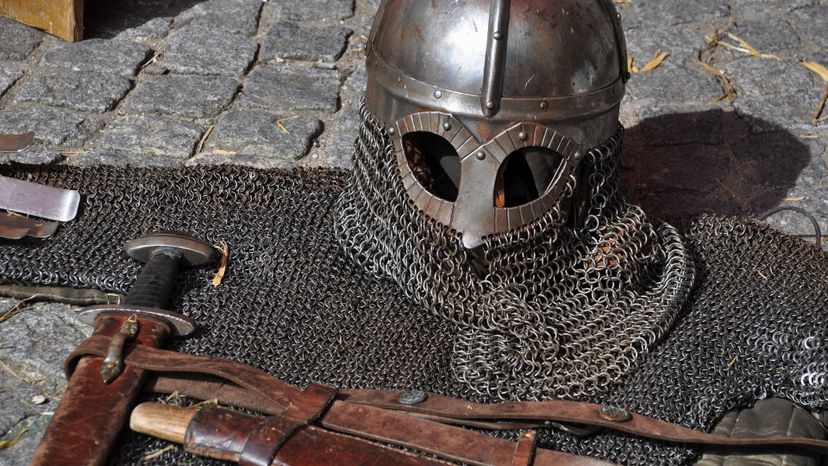
About This Quiz
Can you parry the blows from this quiz?
For as long as humans have been alive, we've had weapons, using them to hunt animals for food, defend ourselves against predators and even fight amongst ourselves. Through grim necessity, weapons have been intrinsically tied to the survival of humans for generations.Â
At first, only simple rocks and sticks were used to hunt. But before long, these were fashioned into daggers, spears, and bows. Once the use of metal became widespread, sharper blades and deadlier conflicts were on the horizon.
In this quiz, we've taken a look at the history of weaponry on a global scale! As a result, this is an inclusive quiz that is both challenging and educational.
It's not just handheld weapons that we're going to be quizzing you on! We've also included some huge weapons that would require an entire squad of soldiers to operate. These include siege weapons, such as the iconic catapult and simple battering ram, as well as the high-rise sized trebuchet.
So, how versed are you in the art of war? Are you a military historian that knows your spears from your swords and your maces from your flails? Then strap on your armor and take a swing at this quiz!
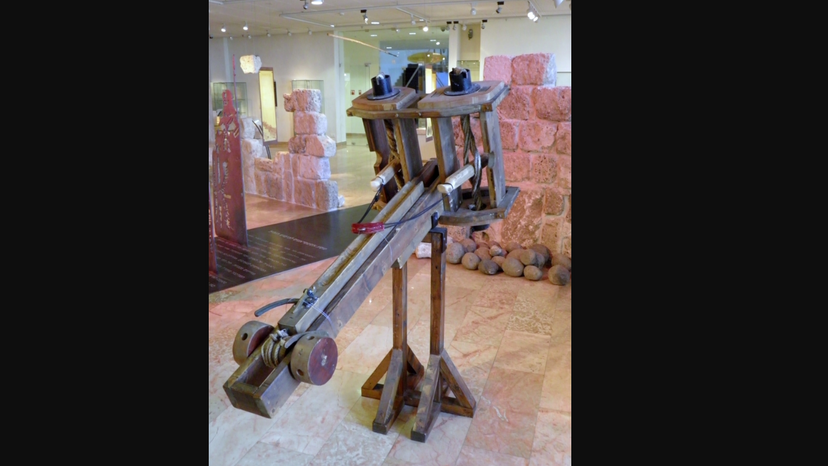
The ballista is a historic siege engine that was designed to attack enemy fortifications. Ballistae fired large bolts or stones. Their appearance is somewhat reminiscent of an oversized crossbow.
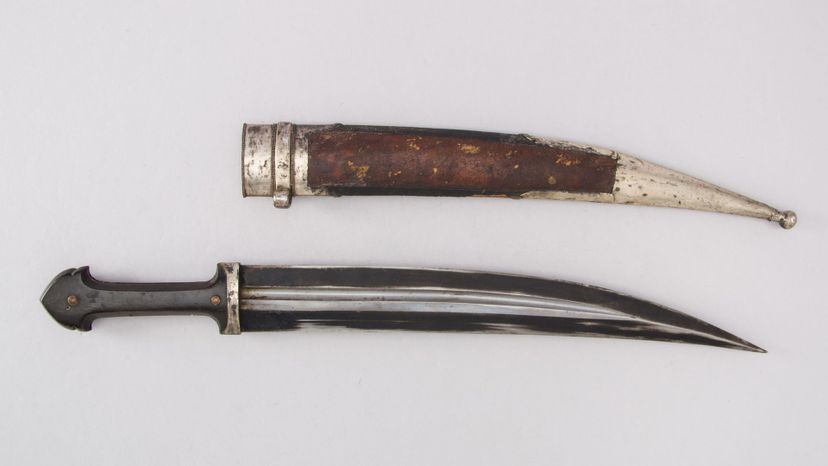
The dagger is a small, bladed weapon. It's notable for being one of the earliest crafted weapons, and has historically been used by humans from all corners of the world.
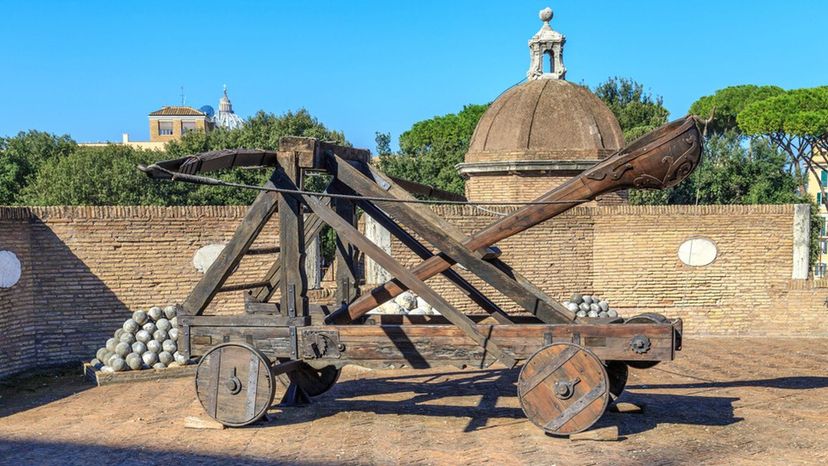
The catapult was a historic siege engine that was designed to demolish enemy fortifications. The weapon was capable of throwing large stones from a bowl-shaped bucket at the end of its moving arm, allowing the siegers to breach their enemy's barriers.
Advertisement
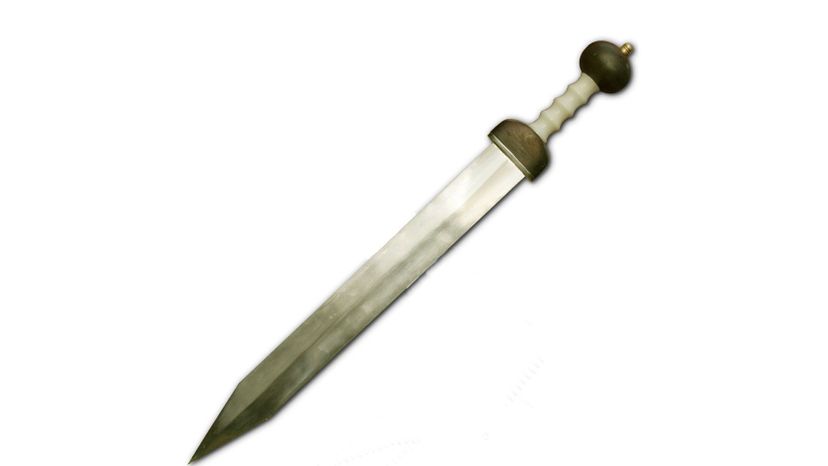
The gladius is a historic bladed weapon that was used by the Romans. It's notable for its minimalist design and the fact that it was the primary sword of ancient Roman foot soldiers.
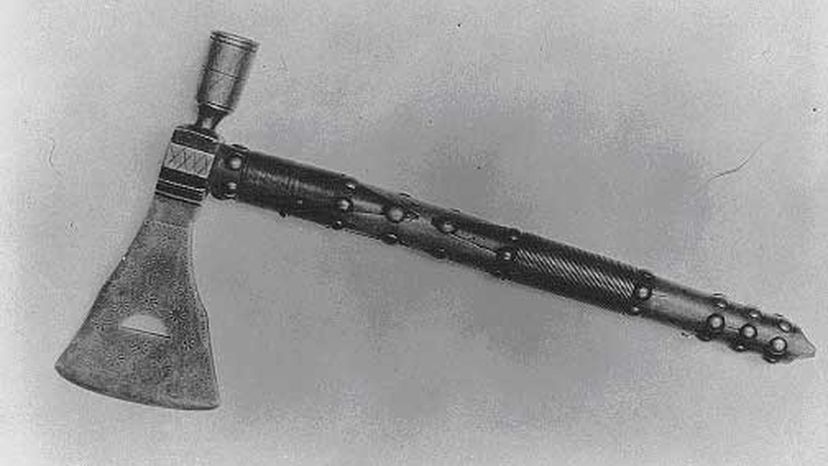
The tomahawk is a historic single-handed ax from North America. They were general-purpose tools that were used by Native Americans as well as European colonials. However, they were also sometimes used for attack purposes.
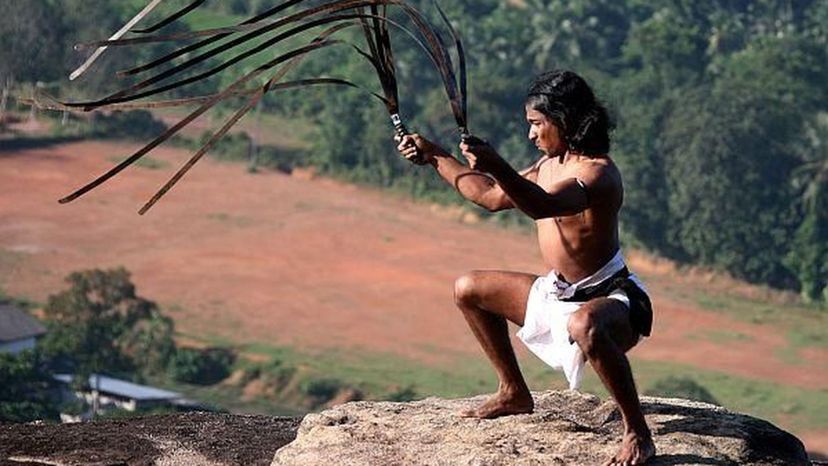
The urumi is a classic sword with a flexible, whip-like blade. It is widely regarded as one of the most difficult weapons to master, due to the risk of injuring oneself while using it. As a result, urumi skills are always taught last in Indian martial arts classes.
Advertisement
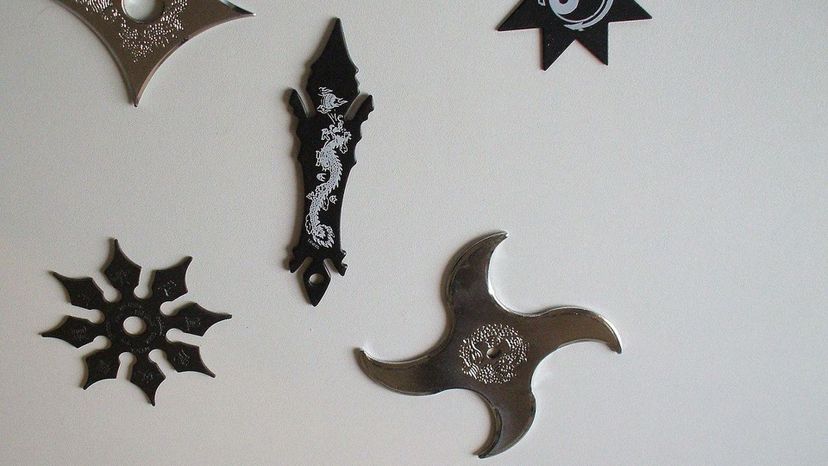
Shuriken are concealed bladed weapons, also known as throwing stars. While they are portrayed in modern media as the weapon of choice for ninjas, historically they were actually first introduced as supplementary weapons to the primary weapons of the samurai.
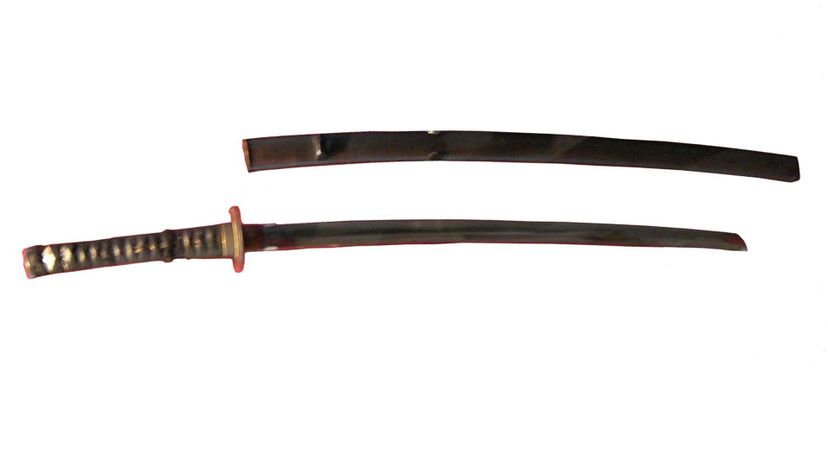
The katana is a traditional Japanese sword. It was most notably used as the primary weapon of the samurai of ancient and feudal Japan.
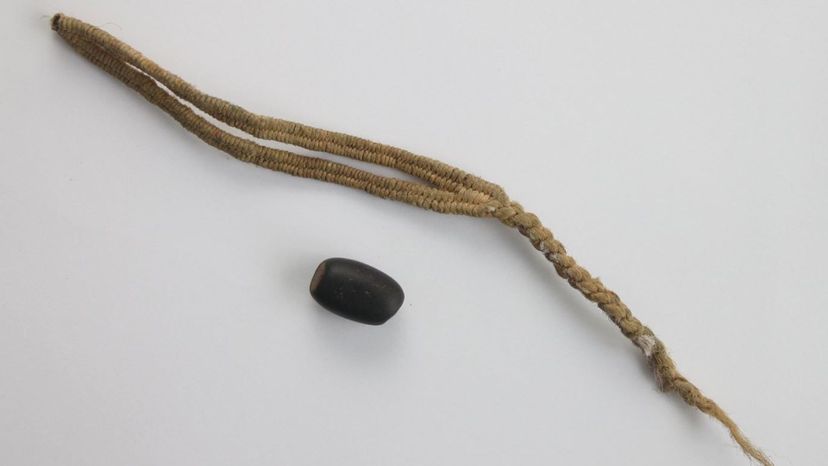
The sling is a projectile weapon that has historically been used for hunting game, as well as combat. It simply consists of a small cradle or pouch in the middle of two lengths of cord, from which stones and other projectiles can be launched.
Advertisement
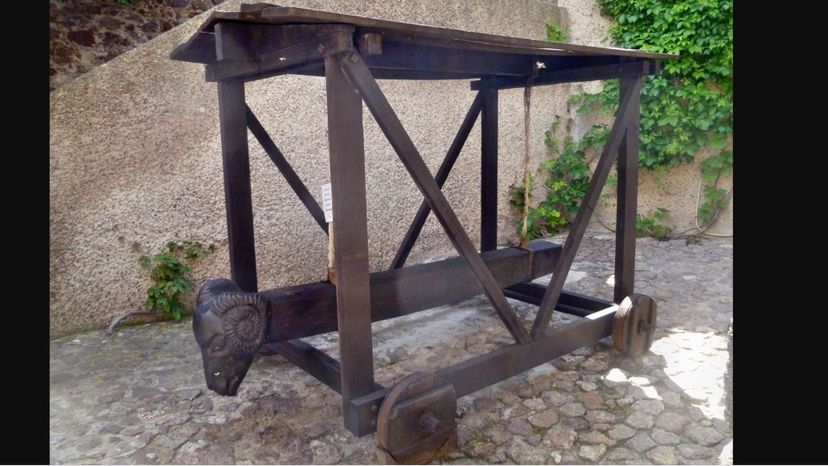
The battering ram is a historic siege engine that was designed to break down walls and gates. Modern battering rams are still in use today; however, these are small-handled versions that are used by law enforcement for battering down doors, not castles.
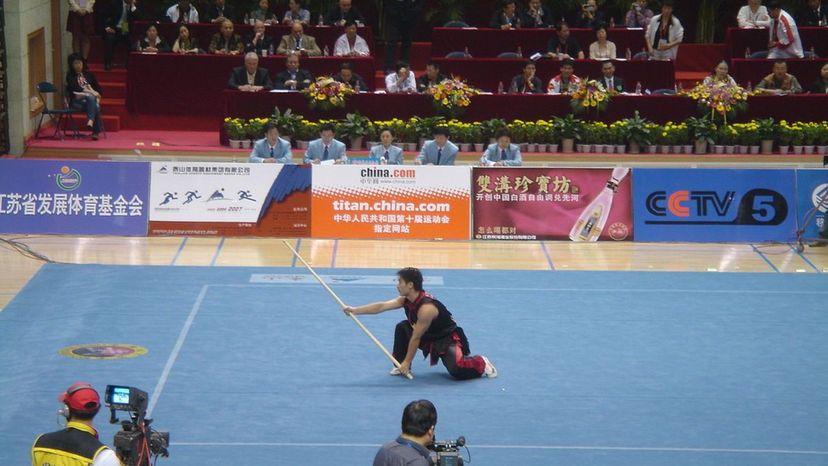
The gun is a historic long staff weapon that is used in Chinese martial arts. When translated to English, the word "gun†in this context literally means "rod†or "stickâ€.
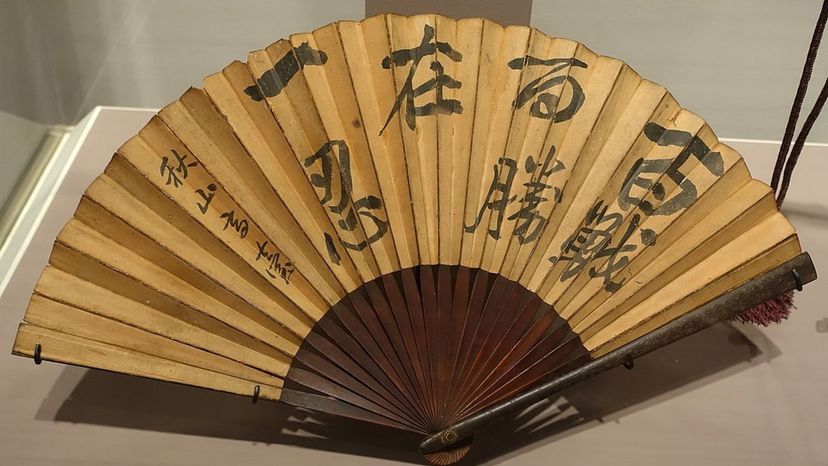
The Korean fighting fan is a historic Korean martial arts weapon that originated in the Joseon Dynasty. Similar to Japanese war fans, this weapon was developed because most Koreans were banned from using swords and similar weapons at the time of its invention.
Advertisement
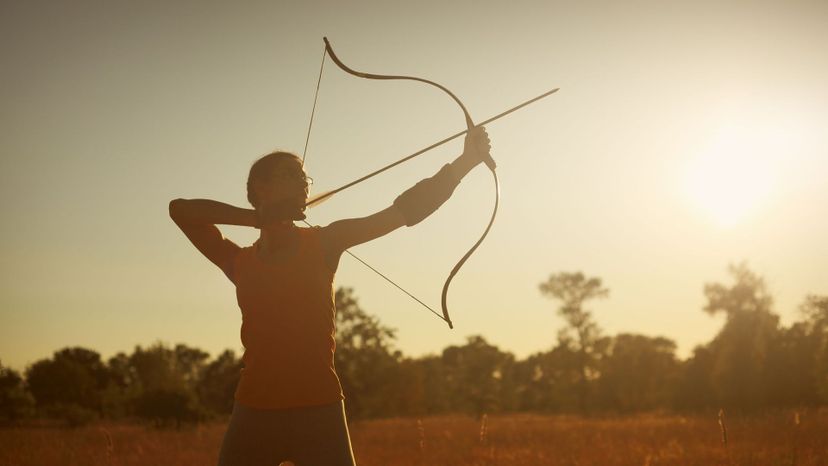
The recurve bow is a ranged weapon that is identified by the fact that its limbs curve away from the archer when unstrung. They are notable for giving a greater amount of force and speed to arrows when compared to those launched by straight-limbed bows.
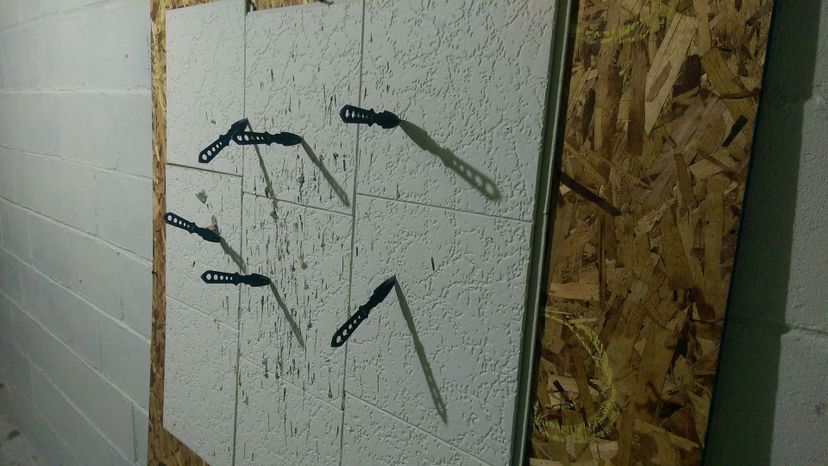
The throwing knife is a bladed weapon. While any knife can be thrown, true throwing knives are bladed weapons that have been designed and properly weighted so that they can be thrown effectively.
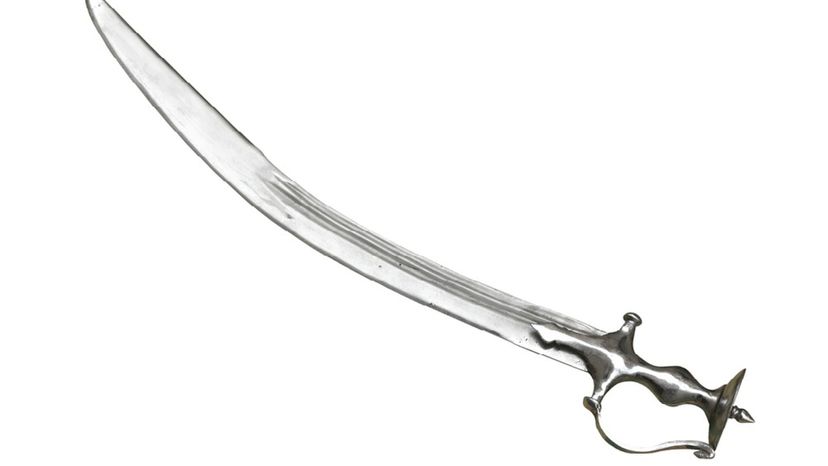
The scimitar is an ancient sword that is notable for its significantly curved blade. Historically, these were primarily used in the Middle East, Russia, Southern Asia and parts of Africa.
Advertisement
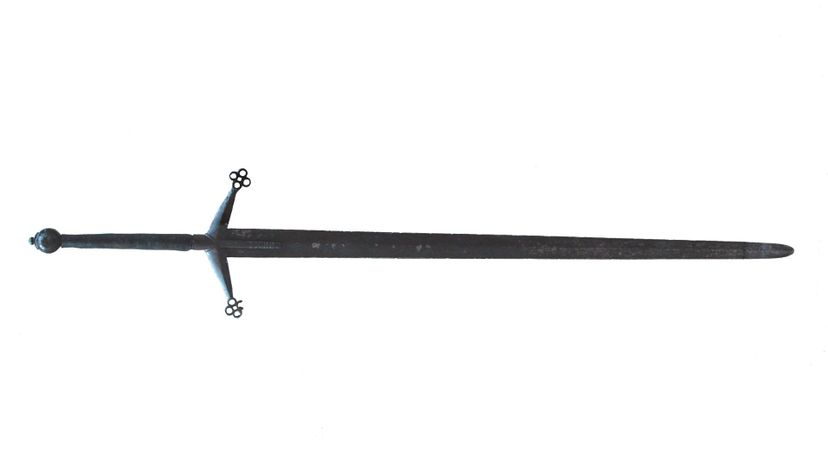
The claymore is a double-edged, two-handed sword. These swords were notable for their immense size, a factor that oftentimes intimidated adversaries.
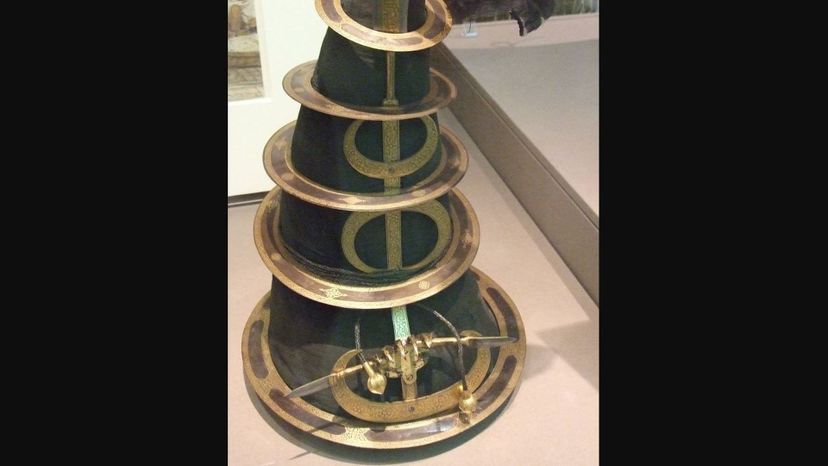
The chakram is a historic bladed throwing weapon that originated in India. It is notable for its circular shape. It can also be used for hand-to-hand combat.
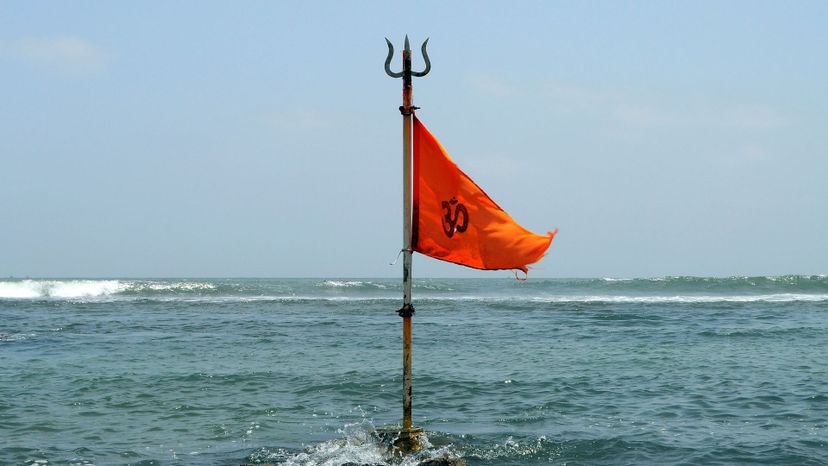
The trident is a historic three-pronged weapon that was used for spearfishing and also as a polearm. It is notable for being attributed to several deities, including Poseidon (Neptune) and Shiva.
Advertisement
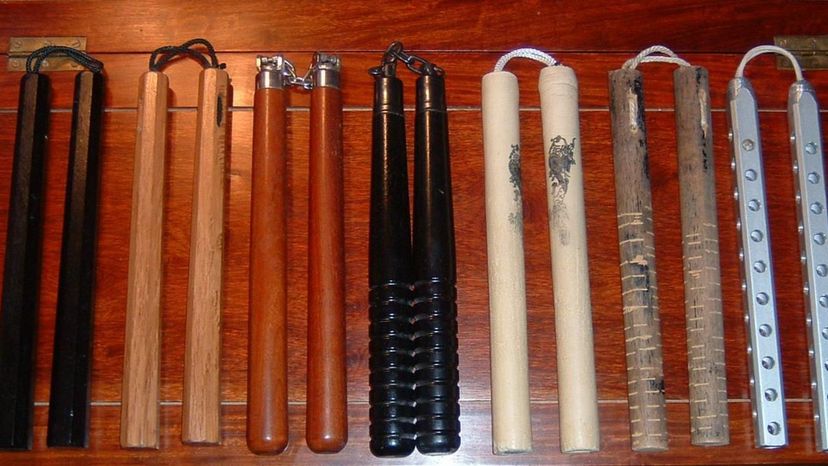
The nunchaku is a historic Okinawan martial arts weapon. It is a basic weapon that simply consists of two sticks that are connected at one end by a short chain or rope.
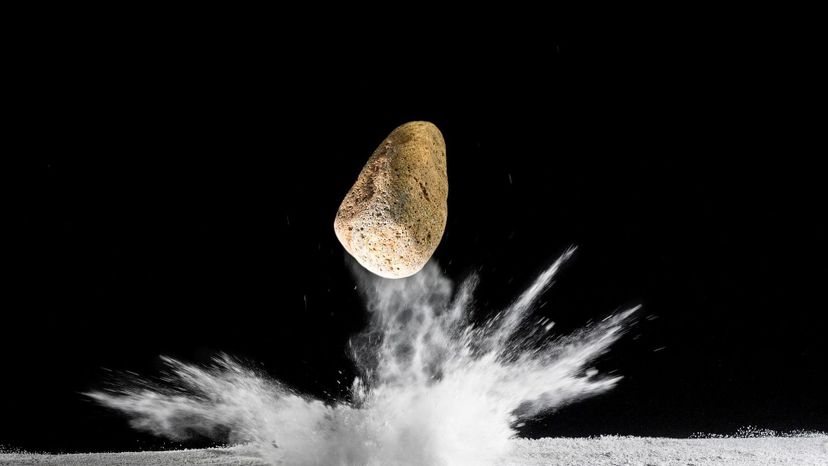
The rock is one of the first (if not the very first) improvised weapons that humans used. While it may seem silly to include it with the rest of these weapons, the usage of the rock as a simple blunt weapon was an important stepping stone in the development of humans.
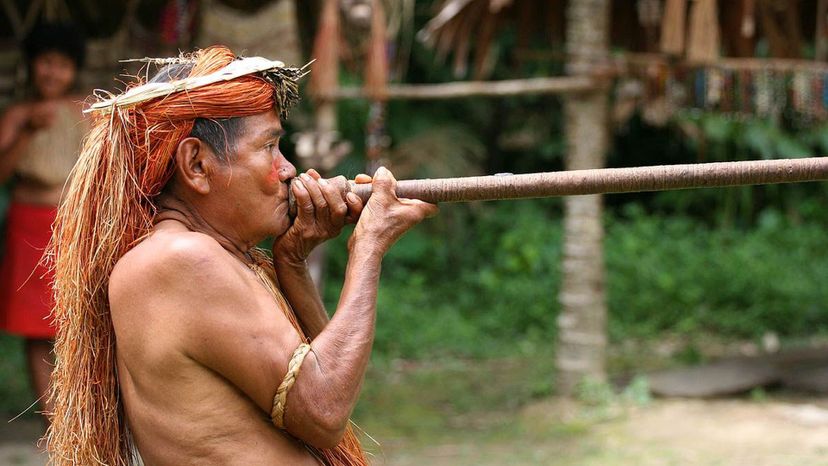
The blowgun is a simple ranged weapon. It consists of a long narrow tube for shooting light projectiles, such as darts, using the force that is creating by blowing into the tube.
Advertisement
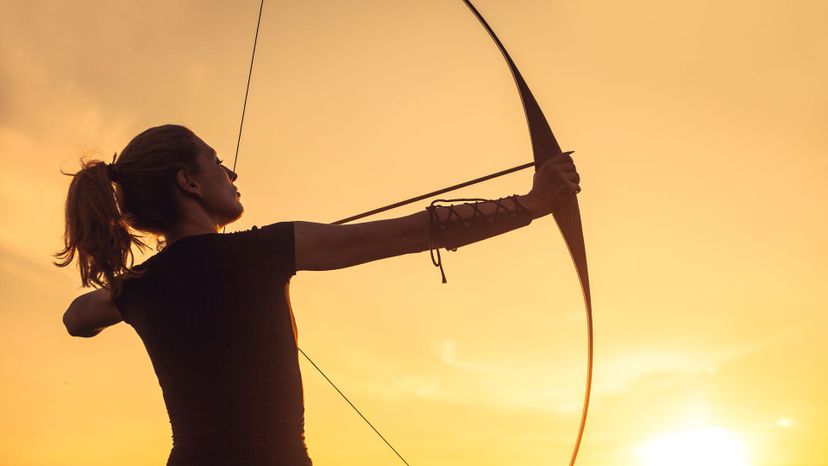
The longbow is a historic ranged weapon characterized by its length, which is roughly equal to the height of the typical user. One of the most notable conflicts that the longbow saw use in was the Hundred Years' War, where the English and Welsh used them against the French.
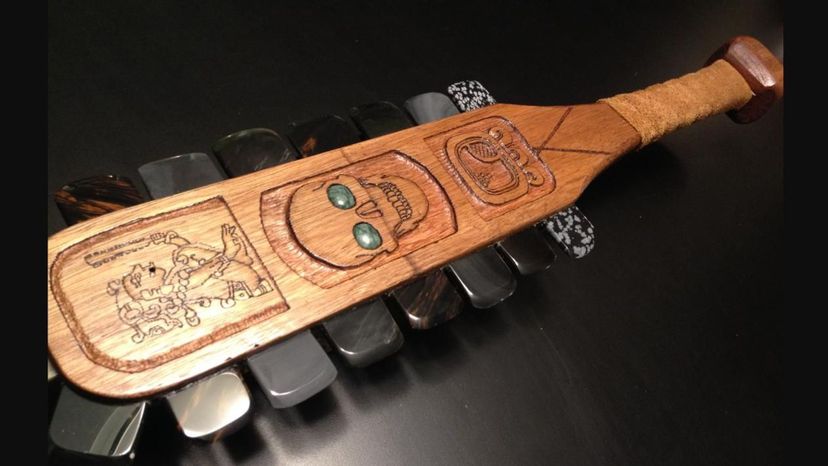
The macuahuitl is a historic club that is notable for its prismatic blades, which are embedded in its sides. Originating in Mexico, the weapon typically featured obsidian blades, a material that produces a sharper edge than even high-quality steel razor blades.
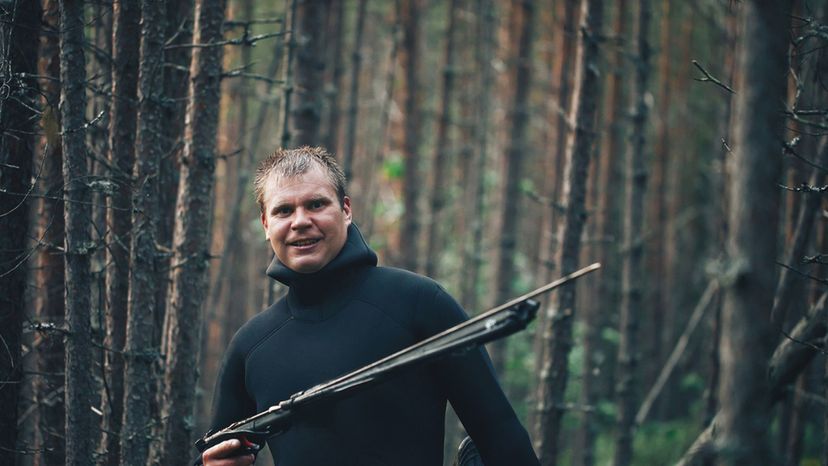
The harpoon is a long, spear-like weapon that was historically used in nautical endeavors. It was primarily used to hunt aquatic wildlife, such as fish, whales, and seals. However, it was sometimes also improvised as a combat weapon.
Advertisement
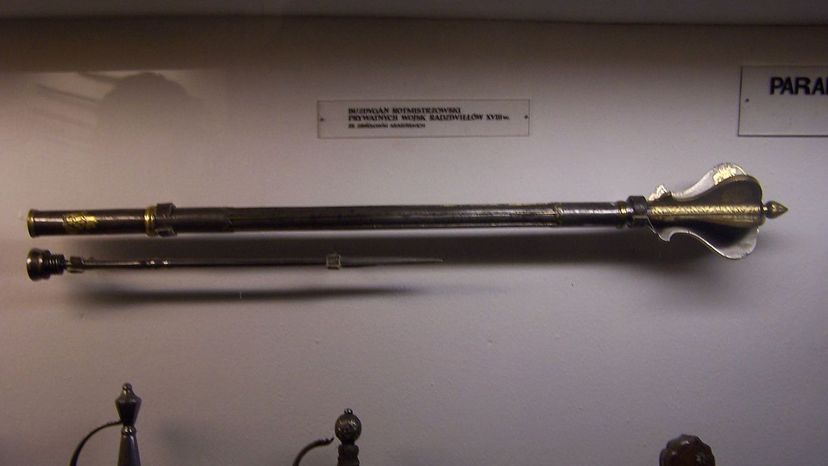
The mace is a historic blunt weapon that simply consisted of a heavy head on the end of a handle. These weapons proved themselves effective against heavily armored combatants since they could cause significant damage to enemies without needing to penetrate their armor.
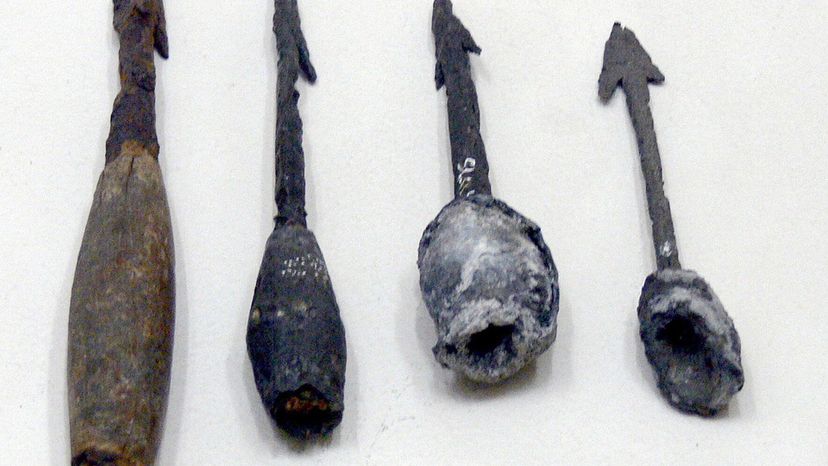
Darts are thrown weapons that have been used worldwide throughout history. Darts differ somewhat from javelins as they are usually considerably shorter and feature fletching.
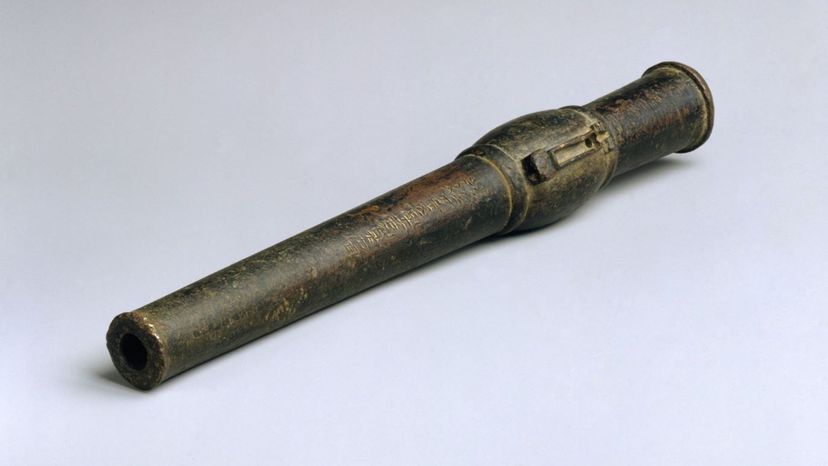
The hand cannon is a historic Asian firearm. Developed in China, the hand cannon is notable for being the very first true firearm.
Advertisement
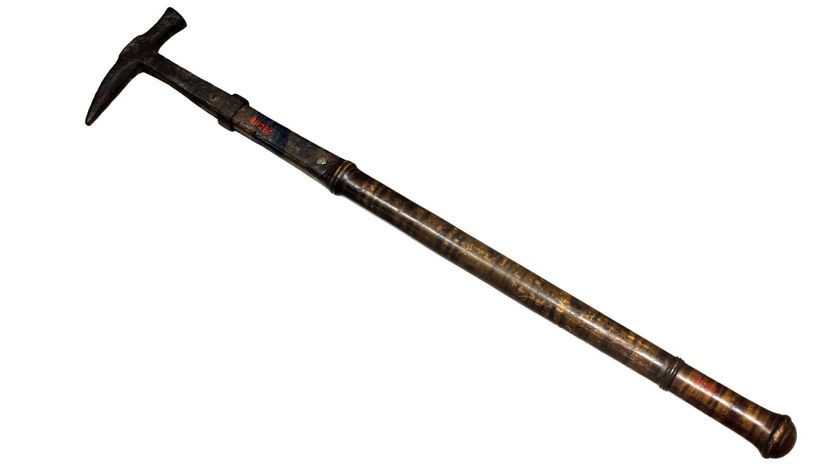
The war hammer is a blunt, bludgeoning weapon. Like its historic cousin the mace, the war hammer was particularly useful for damaging heavily armored enemies.
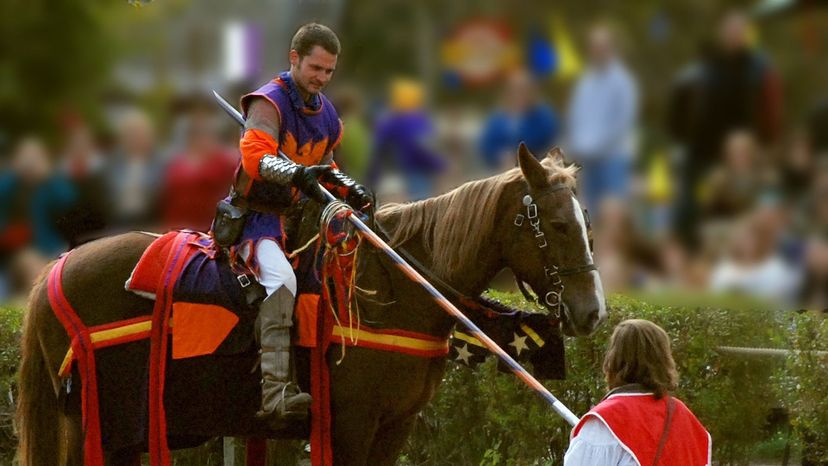
The lance is a historic sharpened pole weapon. Visually similar to a javelin or spear, the lance was specifically crafted to be used effectively by mounted troops.
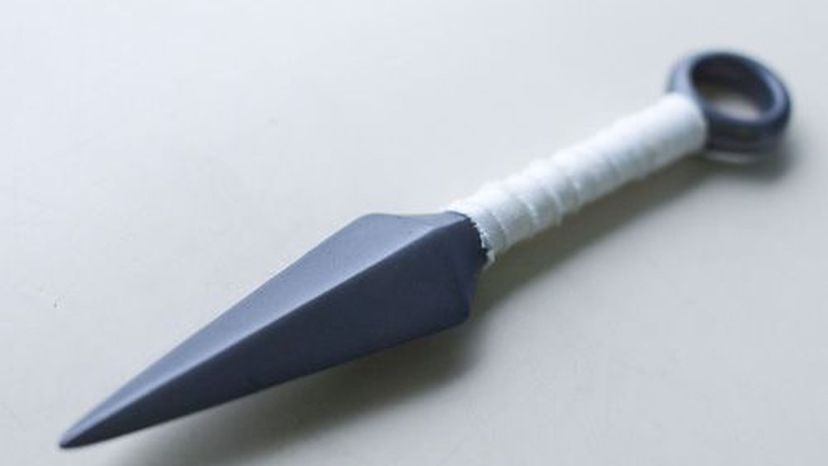
The kunai is a historic small-bladed weapon. Originally a Japanese tool meant for farming, kunai were also used by ninjas as deadly weapons. In fact, many ninja weapons were actually adapted from these tools, since they were readily available.
Advertisement
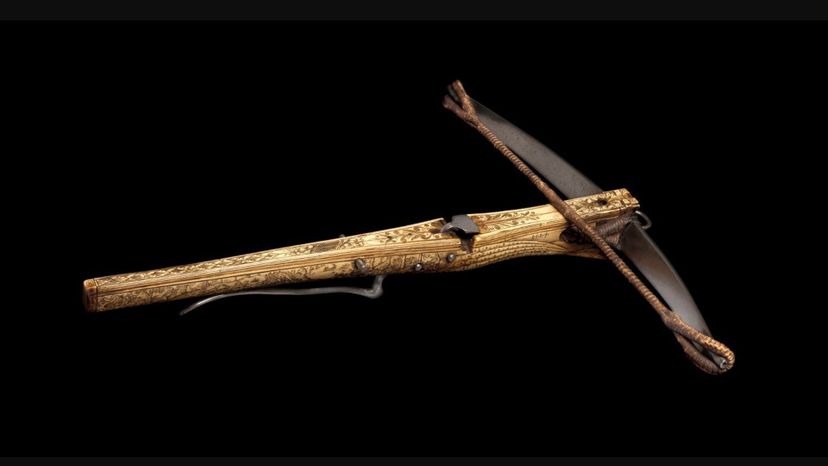
The crossbow is a historic ranged weapon that fires bolts or quarrels. It's based on the bow but is notably less physically demanding and usually fires smaller projectiles.
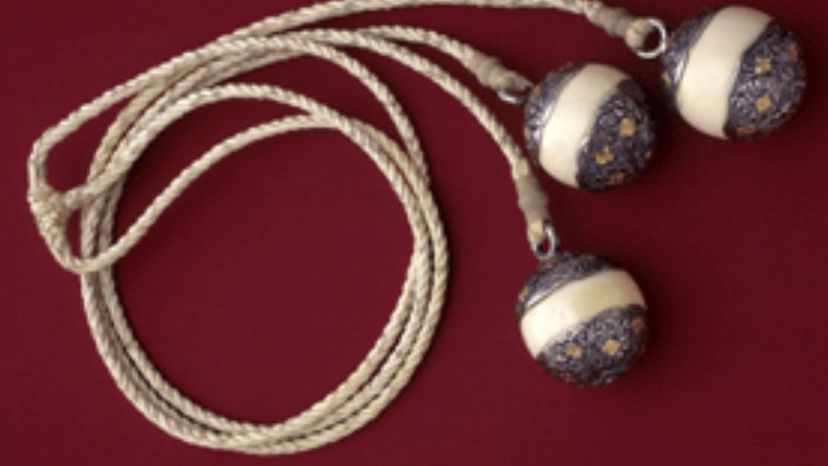
Bolas are a throwing weapon that originated in the Americas. Historically, they were particularly useful for capturing prey without the risk of fatally wounding it.
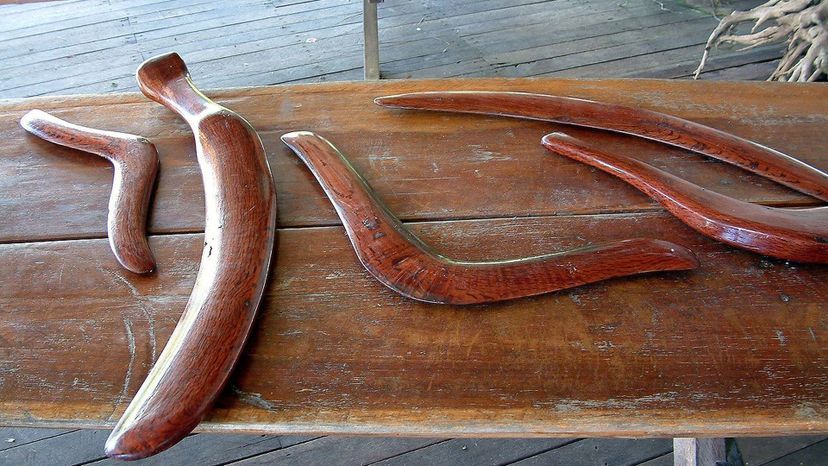
The boomerang is a throwing weapon that originated in Australia. While they were traditionally used primarily for hunting, they are nowadays used for sport and entertainment purposes as well.
Advertisement
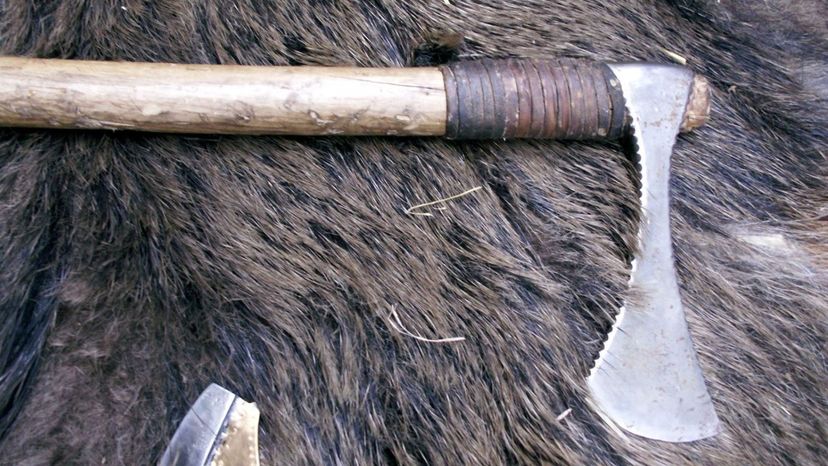
The term "battle axe" is a general classification for all axes that are designed for combat purposes. They may be crafted for use with one or two hands.
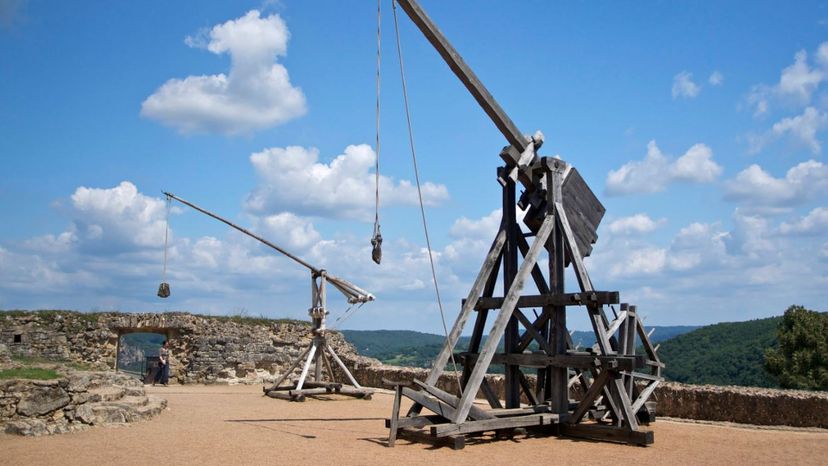
The trebuchet is a historic siege engine that uses a swinging arm to throw projectiles. It is notable for being one of the largest types of siege engines ever created, with heights reaching up to 100 feet or more.
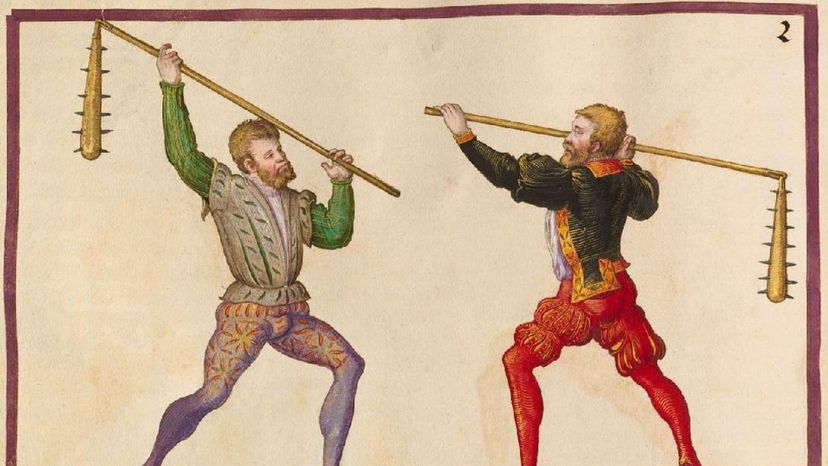
The flail is a historic two-handed infantry weapon. It is notable for its rounded head, which is connected to the handle using a chain or rope. A simple flick of the wrist and a flail can do some real damage.
Advertisement
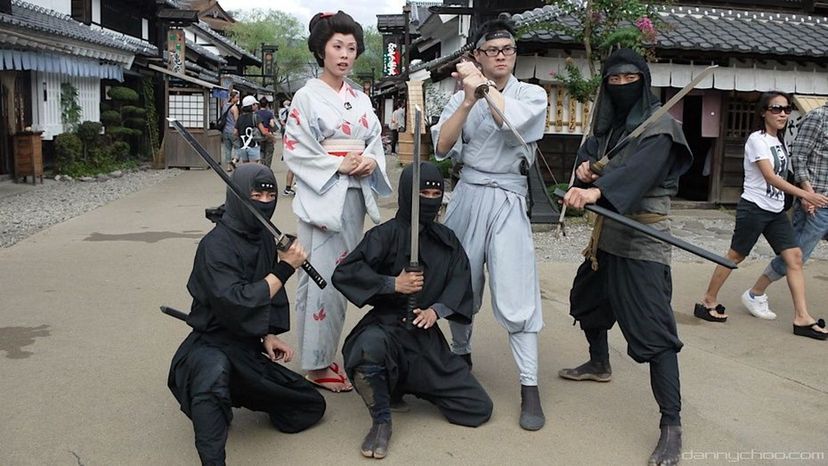
The ninjato is a historic Japanese bladed weapon. They are notable for allegedly being the preferred weapon that the ninja (shinobi) of feudal Japan.
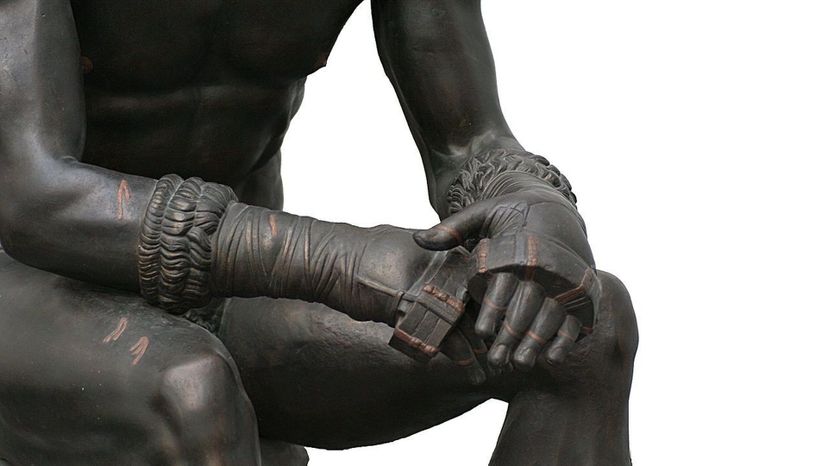
The cestus is a historic battle glove that was used by the Greeks and Romans. They were worn like normal gloves but fitted with iron plates, blades or spikes, which make any blow extra-deadly.
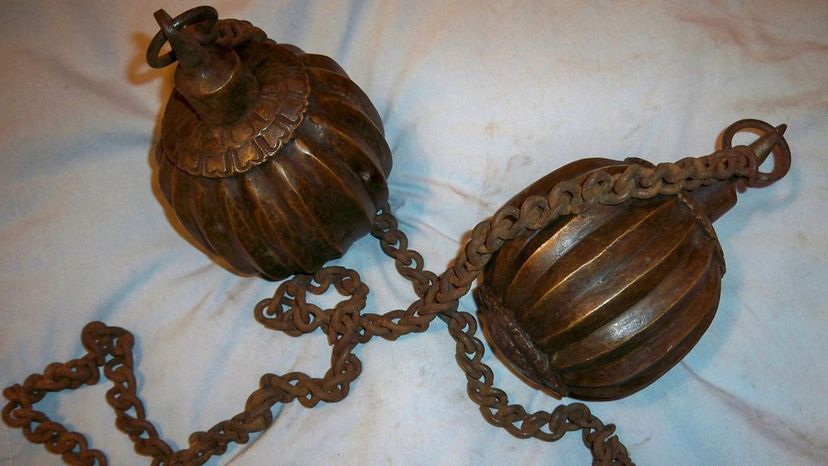
The meteor hammer is a historic bludgeoning weapon that originated in China. The weapon is notable for its lack of a handle and its unpredictability on the battlefield. It's also a difficult weapon to master.
Advertisement

The javelin is a historic light spear that was designed to be thrown. Today it is primarily used for sport. Javelins are often thrown as part of athletic events, a tradition that goes as far back as the Ancient Olympic Games.